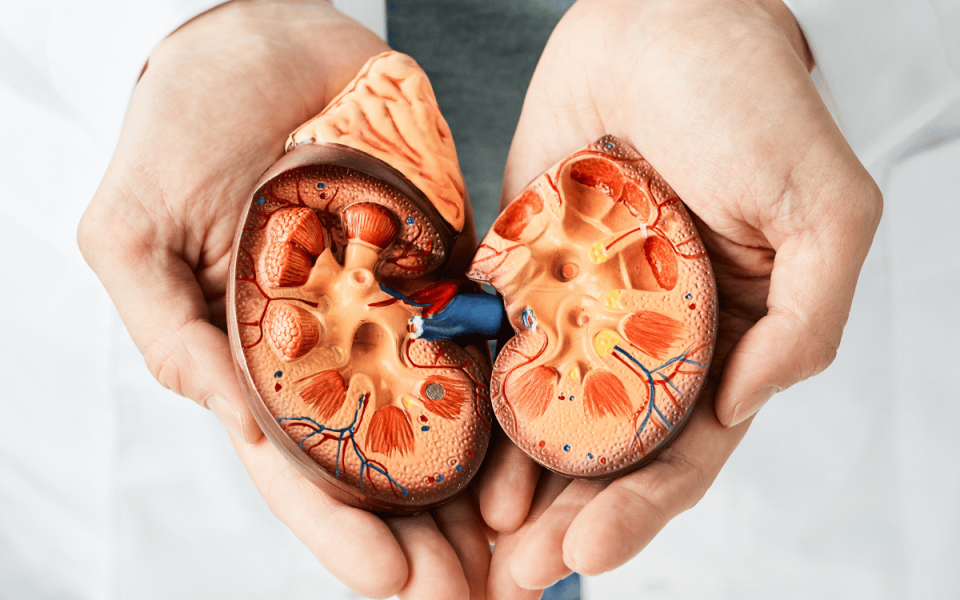Kidney Disease and the Links to Heart Health

Audio
Cardiologist Michael Koren joins Kevin Geddings to discuss how kidney disease can affect other body systems, including the heart. The doctor explains that people with kidney dysfunction have significantly higher risks for cardiovascular problems, including heart attacks, heart failure, and strokes. Dr. Koren differentiates between typical, insurance-driven care and the attentive clinical research experience, noting that the clinical research model may be better for many patients with kidney disease.
Transcripts
Transcript Generated by AI.
Announcer: 0:00
Welcome to the MedEvidence Monday Minute Radio Show hosted by Kevin Geddings of WSOS St. Augustine Radio and powered by ENCORE Research Group. Each Monday morning, Dr. Michael Koren calls in to bring you the latest medical updates with insightful discussions. MedEvidence is where we help you navigate the real truth behind medical research, with both a clinical and research perspective. So sit back, relax and get ready to learn about the truth behind the data in medicine and healthcare. This is MedEvidence!
Kevin Geddings: 0:31
Dr. Koren, we have folks that are listening to us, or they have friends or family members or co-workers who have been diagnosed with kidney disease and you have a special message for them this morning.
Dr. Michael Koren: 0:42
Yeah, so thank you for bringing that up and in fact I want to let people know that if they've been diagnosed with some sort of kidney problem, particularly if they've been told they have quote kidney failure or renal insufficiency, things of that nature, we are actually very interested in you from a research perspective, and the reason for that is because people that have some degree of kidney dysfunction are people that have a higher risk for a lot of problems, including cardiovascular problems.
Dr. Michael Koren: 1:11
So in my world of cardiovascular research we know that if you take two people who are identical except one has a 50% impairment in their kidney function, that person with kidney function impairment is much more likely to have a heart attack or develop congestive heart failure or have a stroke. So for that reason we're particularly interested in ways that we can help those people by identifying their problem as early as possible and intervening in a way that reduces their risk and improves their prognosis. So I would say that if you have been diagnosed with some degree of kidney problem, give us a call and we'd like to look to see if we can help you in a number of different ways.
Kevin Geddings: 1:48
Yeah, yeah, and indeed you're going to get, as someone dealing with chronic kidney issues, some of the best you know, most attentive health care you maybe have ever received right.
Dr. Michael Koren: 1:58
You bet Absolutely. One of the things that everybody agrees on nephrologists and cardiologists is that when people get involved in research, they get a level of care that's very difficult to reproduce in clinical practice. Everybody's just so busy in clinical practice and when you have an insurance-driven model it really becomes a bit of a treadmill pun intended as a cardiologist Whereas in the research setting it's actually much more relaxed. There's more time spent and we get into greater detail with our patients. So that is a real benefit for people who participate in the research process.
Kevin Geddings: 2:31
Well, once again, if you are someone who has a diagnosis of kidney disease, or there's someone in your family, your circle of friends, neighbors, we would encourage you to have them get in touch with Dr. Koren and his team at ENCORE Research Group. That's spelled E-N-C-O-R-E, encoredocs. com, encoredocs. com, and their telephone number locally here in Northeast Florida 904-730-0166. Punch that number into your cell phone, if you can, or jot it down somewhere 904-730-0166. And, of course, if you just have general medical questions you know you're just on the web all the time looking up different things we would encourage you to check out MedEvidence. com, right, Dr. Koren?
Dr. Michael Koren: 3:13
Absolutely, absolutely. In fact, that gets into the conversation we just had about kidney disease, because I did a fascinating interview with a Mayo Clinic researcher talking about polycystic kidney disease and polycystic kidney disease is a genetic disease by and large that affects millions of Americans, and people that have that disease often know about it, but the general public may know less about it, and it's a disease where your kidneys have a lot of these small little cysts that are fluid-filled that over time affect kidney function and in many cases result in people needing dialysis in their 50s and 60s. So we're about to start a study for people that have polycystic kidney disease. So again, that's an example of chronic kidney disease that we can help in the research setting plus a podcast that should drop in MedEvidence over the course of the next week. So we ask people that know about polycystic kidney disease or are worried about it to give us a call and to check out MedEvidence! to learn more about it.
Kevin Geddings: 4:15
Well, once again, MedEvidence! is a good resource and lots of good information that's available to you in different ways. Like we just talked about the podcast, there's ways to watch things on video and just good general information. So please help us spread the word. That's one of our goals here is to get more people to use MedEvidence. com. That's medevidence. com the truth behind the data. Dr. Koren, we appreciate you. Be safe out there in all the rain and traffic, okay you?
Announcer: 4:40
You too, Kevin, have a great week. Thanks for joining the MedEvidence! podcast To learn more head over. You too, kevin, have a great week.



